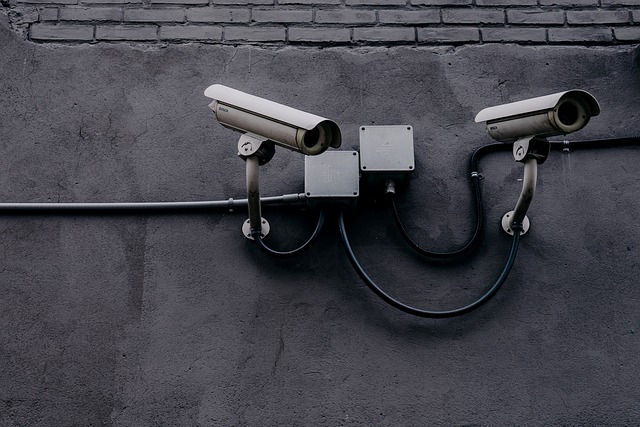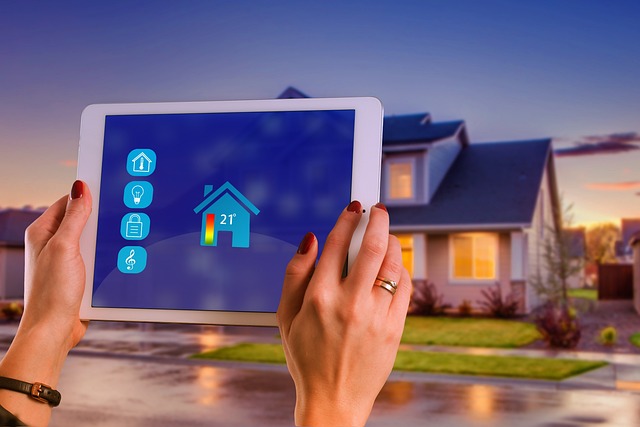The integration of artificial intelligence (AI) has dramatically evolved home security, introducing modern security technology that's smarter and more proactive. AI-driven systems leverage real-time data analysis for anomaly detection, facial recognition to identify authorized individuals, predictive analytics to foresee break-ins, and automated responses to threats. Historically reliant on mechanical locks and alarms, homeowners now enjoy advanced features like intelligent motion detection and improved safety through machine learning algorithms. These AI security advancements offer enhanced peace of mind and protection, revolutionizing traditional home security methods with AI in home security.
The evolution of home security has reached a pivotal point with the integration of artificial intelligence (AI) technology. What was once a reliance on mechanical locks and alarm systems is now being revolutionized by intelligent solutions. This article explores the transformative impact of AI in modern security technology, focusing on its applications, advantages, and challenges in the realm of home protection. Discover how smart cameras, advanced intrusion detection, and voice-controlled systems are redefining safety, while also delving into the ethical considerations and future prospects of this game-changing approach to home security.
- The Evolution of Home Security with AI Technology
- – Historical overview of home security and its transition to AI-driven solutions.
- – Key milestones in the development of AI for security purposes.
The Evolution of Home Security with AI Technology

The evolution of home security has seen a remarkable transformation with the integration of artificial intelligence (AI) technology, revolutionizing how we protect our personal spaces. Modern security technology now leverages AI to offer smarter, more proactive protection than ever before. By analyzing patterns and data in real-time, these intelligent systems can detect anomalies and potential threats, enhancing traditional security measures.
AI in home security provides advanced capabilities such as facial recognition, voice commands, and predictive analytics. These features enable devices to learn the habits of their inhabitants, recognize authorized individuals, and even predict and prevent potential break-ins. The role of AI in safety is not just to detect intrusions but also to automate responses, ensuring a swift and effective reaction to any perceived threats.
– Historical overview of home security and its transition to AI-driven solutions.

Home security has evolved significantly over time, from simple locks and alarms to complex surveillance systems. Historically, homeowners relied on mechanical and electronic devices to protect their properties. Traditional security measures included bolts, bars, and alarm systems that sounded when triggered by motion or breakage. These methods were effective but lacked intelligence and proactive protection.
The integration of artificial intelligence (AI) in home security has revolutionized modern security technology. AI-driven solutions offer advanced features such as facial recognition, predictive analytics, and automated response systems. By leveraging machine learning algorithms, these technologies can identify familiar faces, detect unusual patterns, and even predict potential threats based on historical data. This shift towards AI in home security enhances not just protection but also convenience and peace of mind for homeowners, ensuring a safer living environment through intelligent and proactive measures.
– Key milestones in the development of AI for security purposes.

The development of AI for security purposes has witnessed significant milestones over the years, revolutionizing modern security technology and transforming traditional home protection methods. One of the earliest breakthroughs was the introduction of computer vision algorithms, enabling systems to recognize and classify objects, people, and behaviors within a given environment. This laid the foundation for AI-driven surveillance and monitoring systems, which have since become integral parts of smart homes.
As artificial intelligence evolved, deep learning techniques further enhanced its capabilities in security applications. Machine learning models could now analyze vast amounts of data, detect anomalies, and adapt to new patterns, improving accuracy and response times. Today, AI in home security encompasses a range of innovative features like facial recognition, intelligent motion detection, and predictive analytics, offering unprecedented levels of safety and peace of mind for homeowners.






